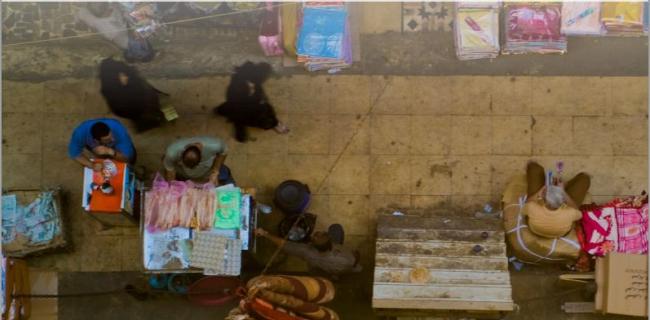How can financial inclusion and financial integrity policies complement each other? That question was addressed in a report recently released looking at the state of Ethiopia’s anti-money laundering/combating the financing of terrorism (AML/CFT) framework.
The assessment was conducted by a World Bank Group team of experts and published by the Eastern and Southern Africa Anti-Money Laundering Group (ESAAMLG). This is the first assessment of a developing country to be published which uses the revised 2012 Financial Action Task Force (FATF) standards.
Ethiopia’s compliance with the international standards on AML/CFT had never been assessed before and this report sheds light on the functioning of a unique and vibrant economy in Africa. In addition, this is the first AML/CFT assessment to highlight the connection between financial inclusion and financial integrity policies.
As noted in an earlier blog entitled “The Royal stamp of Inclusion”, the FATF has confirmed that financial inclusion and financial integrity are mutually reinforcing public policy objectives. The revised FATF standards have a more explicit focus on the risk-based approach in implementing an AML/CFT framework. This approach allows for the identification of lower risk scenarios and the application of simplified AML/CFT measures in certain areas (primarily customer due diligence, or CDD).
The Ethiopia assessment notes that only about 28% of the population is served by the formal financial system – leaving 72% of the population dependent on cash or informal financial service providers. The Ethiopian government has identified the expansion of formal financial services as a national priority – through their “Growth and Transformation Plan” and the “Ethiopian Financial Inclusion Project”.
The assessment makes suggestions as to how the Ethiopian authorities can ‘link up’ the policies of inclusion and integrity, for example by allowing for simplified customer due diligence processes, and by providing guidance to financial institutions on the issue.
A key recommendation of the assessment is that, “the efforts of the national government to promote financial inclusion should be coordinated closely with AML/CFT authorities to ensure that money laundering/financing of terrorism risks are considered and managed in this context.”
Since the FATF standards have been revised, only four other assessments have been published to date (Australia, Belgium, Norway and Spain). Assessments of countries in the developing world have only begun in recent months, and the Ethiopia report is the first to be made public.
The issue of financial exclusion as a risk for money laundering and terrorism financing (ML/TF) was not addressed in the first four reports. However, given the ML/TF risks and level of financial exclusion in Ethiopia, the issue of financial access features prominently in this new report. The publication should serve as an example for how future assessments of countries in the developing world can address this issue.
The report also demonstrates how far Ethiopia has come in a short time. Just five years ago, the country was identified by the FATF on their “gray list” as having strategic deficiencies related to AML/CFT. At that time Ethiopia was not a member of a FATF-style regional body and had never been assessed against the international standard. As is noted in this report, Ethiopia has made significant strides in passing laws and regulations which bring the country in to technical compliance with the majority of FATF Recommendations. Now its ratings in this area outpace some of the developed world’s compliance with the same standards.
But the real test of an AML/CFT system is how it is applied in practice. Given the relative youth of Ethiopia’s framework (enacted within the past 4 years), it has been difficult to draw firm conclusions on the extent to which the system is actually delivering results.
The report on Ethiopia underlines the idea that financial inclusion and financial integrity policies should reinforce each other. This example should help governments elsewhere establish and enact policies that put this into practice to ensure inclusive and sound financial access for more people in the developing world.
Emily R. Adeleke is a Financial Sector Specialist at the Financial Market Integrity Unit of the World Bank
